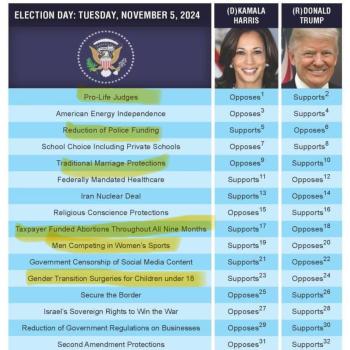
For this literature review, I set the metrics to worldwide, last 30 days, world cup football competition; to discover tags.
“ethics, group norms, & tattoos” CLICK HERE
“Clement & Augustine on Psalm xix, ethics pt. 2” CLICK HERE
only possible to humble faith, Micah 6.8 | ethics, pt. 3 CLICK HERE
i. revealing sin to reveal our need for salvation
In Romans VII.7a Paul questions the Law. He basically asks, is the Law just a set of rules too difficult to follow? Is it therefore evil? He responds with, “Of course not!,” and dives into the Law’s purpose.[1]
“The apostle refrains from any criticism of the law.… What high praise of the law we get from the fact that by it the latent presence of sin becomes manifest! It was not the law which led me astray but sin.”[2]
The Law exposes sin. “I did not know sin except through the law” (Romans VII.7b).
i.a Augustine & Jerome both address the issue
“The law was given not to introduce sin nor to extirpate it but simply to make it known; by the demonstration of sin to give the human soul a sense of its guilt in place of the assurance of its innocence.”[3]
“If the commandments are given to be obeyed, then man can be without sin; if he is, by his creation, such that he must be a sinner, then God, not he, is the author of sin. To the argument that sacrifices are enjoined for sins of ignorance, he replies by appealing from the Old Testament to the New, which leads to a discussion (2, 3) on St. Paul’s description of the conflict with sin, in Romans vii. Paul, it is argued, speaks not as a sinner, but as a man, and thus confesses the sinfulness of humanity. That men may be without ingrained vice is possible; that they can be without sin is not. This leads the Augustinian, Atticus, resuming his list of testimonies, to the fact that, though men are found who are righteous as avoiding wickedness (κακία [wickedness]), yet none is without sin (ἀναμάρτητος [sinless]).”[4]
i.b Pelagius & other teachers are speaking about attaining wholeness or holiness without recognizing sin, or original guilt.
The church leaders retort, and continue to do so, citing the law. Whether they are speaking directly of the Mosaic Law or the Law of Christ is beyond me, however I would offer a guestimate we’re discussing a blend of both.
Of course they’re both Latin Fathers, but Augustine doesn’t even speak Greek.
Jerome starts the first Abbey ever near Bethlehem, and a popular notion is the Abbey is for females. Later, from what I’ve read so far about Julian of Norwich and the nunnery, even she reports to someone like a Bishop, Parochial Vicar, or Monsignor. Nonetheless, do her writings influence Britain and the continent in an aeon when reform is needed? That’s exactly where it’s headed because Pelagius seems to be from the same region. So Augustine, Jerome, and perhaps even Julian of Norwich offer a corrective.

ii. Paul is able to give an example of the Law’s energy to reveal sin
“I did not know sin except through the law, and I did not know what it is to covet except that the law said, ‘You shall not covet'” (verse 7c).
To know (ginosko, sp?) is somewhat of a neutral term, despite the other heresy Clement of Alexandria (philosopher and Christian leader) viciously debates earlier. He may be a Greek Father from the Markian apostolic line of succession, or maybe from the Ethiopian in Acts VIII, perhaps a precursor to the Copts.
To read some of Clement’s work in tandem with Augustine, please see “Clement & Augustine on Psalm xix, ethics pt. 2” CLICK HERE
iii. this literature review proves I am certainly not the Latin-Greek Father Jerome, or even Tertullian is
Nonetheless, I would like to offer a Scriptural reference of when covet is used in a really good way, and I hope it is not lost in translation.
There are plenty of times in the Hebrew Bible, in the Intertestamental Period, and in the Talmuds where the term “zeal” is utilized. Zeal often denotes the jealousy of our God, who can be very jealous or covetous.
Those who are close to Christ remember this, even though this is one of the catalysts toward the beginning of the Christ Event (John II.17). It’s not a subject I ever really care to debate, once again beyond me.
iv. Noah & Hammurabi
The Noahic Covenant may or may not have been established in some type of mountaintop experience. After all, the waters had receded at some point, and perhaps some of the wood was being repurposed for the sacrifice involved for cutting a covenant, for shelters, for tools, stalls, etc. The Noahic covenant continues to impact law, not only for those who read the columns or the surrounding commentary, on the topic.
Hammurabi, perhaps a little Southeast (who knows) establishes one of the grandest and earliest forms of a code of ethics, unless one is not counting the path of the Boddhisatva. It is one of the strictest disciplines in it’s original form, not necessarily considered a religion at the very start. In fact, one of the early forms of the golden rule is found in some of the early writings, one Jesus actually cites cataphatically. Furthermore, the earliest Buddha legends reveal something quite like a dry, rule of life (i.e. the writings of St. Benedict’s). This is far from popularizers. In govt./ethics courses I’ve had to read portions of Hammurabi’s code, maybe all of it, even though it’s over 200 laws.
Within Hammurabi’s law there there is something similar to the 12 ways of the Buddha, which is similar to the golden rule Christ cites. Hammurabi’s law, like the Noahaic Covenant, continues to impact law.
v. Noah & Hammurabi seem to have mirror references within the Mosaic Law
This is specifically the Ten Commandments in a couple locations in the first five books of the Bible.
Is it possible Moses (or the Deuteronomist/s) have access to the growing Egyptian library perhaps eventually becoming the great library at Alexandria, the region where Clement eventually is?
Of course, I’m sharing these characters in order of appearance.
vi. closing considerations in this original literature review
vi.a what of the Deuteronomist?
Is it possible the Deuteronomist/s are females, or perhaps the first is Jochebed or Miriam, possibly someone assigned from Pharoah’s daughter?
There is a theory a general unnamed editor/s finalized some of the copies of the events.
vi.b what of the flood?
There seems to be growing, global interest about a cataclysmic flood (high elevation dry lakebeds, wadis in odd places, swaths of land given to monsoons, etc.).
Who knows what Gilgamesh was thinking on the subject?
vi.c law & ethics have influenced our grander narrative from the dawn of time, and so have correlating writings & testimonies of the events
“So then the law is holy, and the commandment is holy and righteous and good.” (Romans VII.12)
A person or community can start to develop mores (pronounced morays, I think). There are plenty of collaborating writings throughout all aeons.
Are they innate or outside?
If various cultures throughout history have developed mores intuitively, then I would offer a guestimate they’re innate, perhaps even endowed upon humankind from the unmoved mover.
As people or a community develop mores, they articulate values, whether written or not. There are customs like the writing on the wall, and then there are unspoken truths. People learn this as they are accepted into the community (i.e. discovering the role of various peoples in the community gathering). Some congregations are sold on “a youth pastor” model of leadership for instance, or maybe “the top-hatter” approach, unfortunately.
Then there are ethics, a little more formal. One subdisicipline of ethics could be law, however this knowledge is beyond my jurisdiction (pun intended).
vi.d once again, ethics as considered in this series, has to do with Christian moorings for the field in general
WordCounter.net is a great tool for a number of reasons. My ratings for reading level are usually between 11th to college level, however I’ve seen a graduate ranking or two with my material, including a literature review or two.
Actually, a typical literature review for me is graduate, perhaps even like a TA in the halls discussing the thesis or dissertation she’s wrapping up with the professors. There are some Pentecostal leaders at SMU for instance, who were interested with these grades, and my ability to move forward in Texas, just right across the street from the chapel office. I’m not sure where you’re going, but some claim their state or commonwealth is the greatest. When considering ethics and law, I see people doing a lot of wonderful things for the kingdom of God, but I sometimes want to ask repeatedly, “Yeah, but where are you going?”
For this literature review, I set the metrics to worldwide, last 30 days, world cup football competition; to discover tags.
Nan Palmero | 01.08.10 | Creative Commons
Candice Palmer w/ CGI | Tea Time, New Year | 2022













